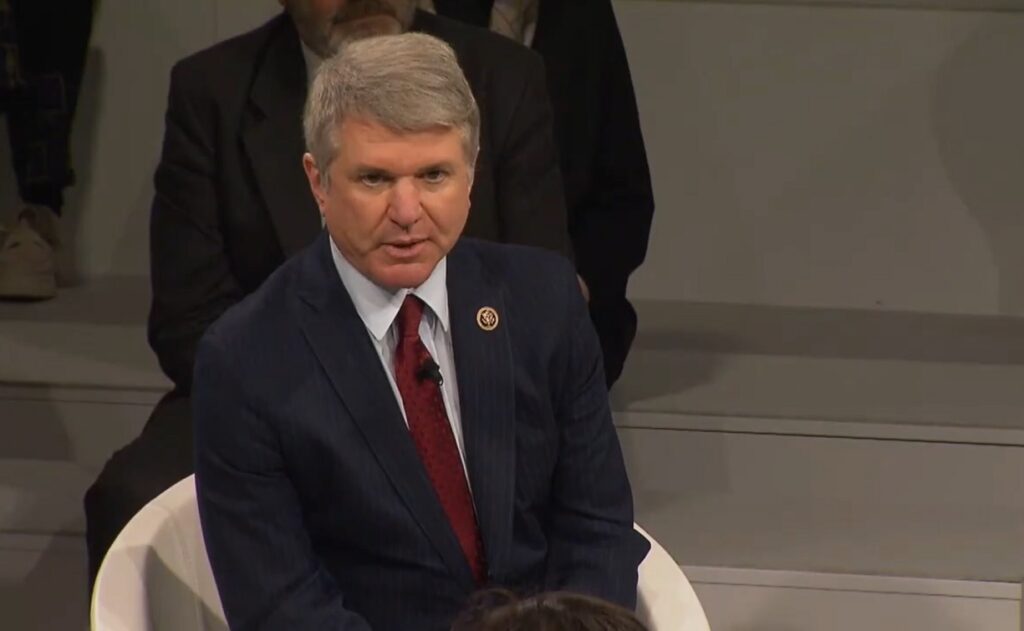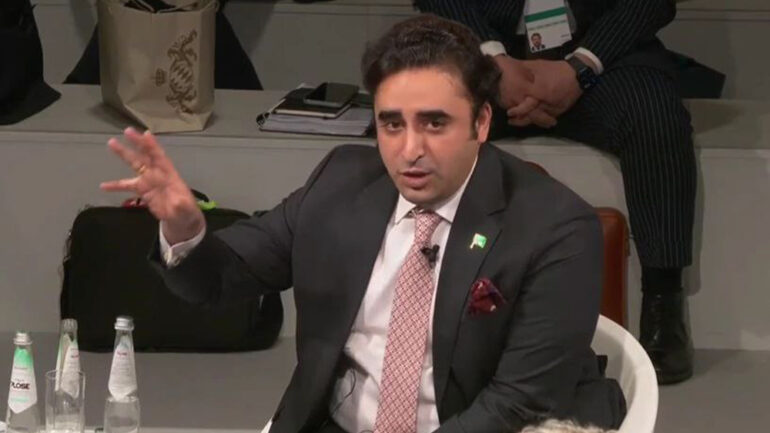The terrorist groups in Afghanistan have more coordination than the international community, said Pakistan’s Foreign Minister Bilawal Bhutto Zardari at a shared panel of Munich Security Conference with the US Congressman McCaul, Spanish and Belgian foreign ministers, UN Children’s Fund Director, and two Afghan women activists on Saturday.
Zardari said that terrorist activities have already emanated from Afghanistan into his country, warning that “it won’t be long” before it reaches beyond Pakistan if the international community and the Taliban did not demonstrate the “will and capacity” to take on these terrorist groups.
“The concern is that if we and the interim government don’t take these groups seriously and they don’t demonstrate the will and the capacity to take on terrorist groups then they will conduct terrorist activities in the region first — we are already witnessing an uptick in terrorist activity in Pakistan since the fall of Kabul — but it won’t be long before it reaches somewhere else,” the Pakistani minister said at the panel urging the international community to act “pre-actively” before a “nightmare scenario” happens.
Pakistan’s foreign minister, meanwhile, voiced for unfreezing Afghanistan’s frozen assets so the Taliban government finds the “capacity” to take on the terrorist groups operating from the country. “There is whole alphabet soup of terrorist organizations that have and still do based themselves out of Afghanistan. The Tahreek-e-Taliban Pakistan, the Baloch Liberation Army, al-Qaida, the ETIM, and I can go on,” he named some of the groups currently operating under the Taliban umbrella in Afghanistan.
In response to Zardari’s comments, Chairman of the US House Committee on Foreign Affairs Micheal McCaul said “the Taliban obviously do not treat women very well and they have taken their rights away. Until they engage them in a better behaviour, we cannot recognize them as an official governance. And I think we can leverage them to change their behaviour.”
The US Congressman added that it was an irony that Haqqani, the most wanted terrorist “who harboured the number two al-Qaida [Ayman al-Zawahiri],” was now Afghanistan’s interior minister and responsible of providing security.
“There is resurgence of the Northern Alliance that were freedom fighters in the first place. We need to encourage women’s rights. We need to encourage resistance to this oppression that they [Afghans] are living under,” the Congressman said in an apparent reference to the anti-Taliban National Resistance Front (NRF) led by Ahmad Masoud, son of the slain Jihadi commander Ahmad Shah Masoud.

Regarding McCaul’s comment about the NRF resistance, Zardari of Pakistan said “no resistance to the Taliban that is any serious threat to them exist. The biggest threat to the Taliban right now is Daesh and ISIS. If you prefer them, take them.” He argued that the situation in Afghanistan was the “direct result” of the US and NATO pull out of the country and there is no other option but to deal with the Taliban.
Zardari’s remarks was quick to ignite a response from the NRF. Sibghatullah Ahmadi, a spokesman of the front, said that Zardari denies the reality of the resistance against the Taliban in Afghanistan. “The resisting people of Afghanistan will be victorious, and instead of a foreign country, the people of Afghanistan will decide about the nature of the country’s political settlement and their destiny,” he added
The Taliban welcomed Zardari’s call on the international community to lift sanctions on the Taliban and unfreeze Afghanistan’s assets but described his accounts of terrorist groups operating out of Afghanistan as “untrue”.
“It should be noted that Afghanistan’s security is now much better than many countries around the world,” the Taliban Ministry of Foreign Affairs said in a statement, rejecting Zardari’s account that the Taliban does not have a standing army and professionally trained security forces.
Catherine Russell, Executive Director, United Nations Children’s Fund, called for separating political challenges from the humanitarian in dealing with the Taliban, describing the humanitarian situation in Afghanistan as “terrible”.
The Belgian foreign minister, Hadja Lahbib, stated that the Western World needed to stay involved in Afghanistan because, she argued, the risk would be to return back and “create all conditions which has led to 9/11”. Lahbib added that “we have to, at least, deliver the humanitarian help in the field.”
Spain’s foreign minister, José Manuel Albares Bueno, said “we should not recognize the Taliban but we should engage with them” on making sure the humanitarian assistance is delivered to those in need and on creating a space for the Afghan women and girls.
The Munich Security Conference (MSC) is an annual global forum where leaders from politics, business, academia, and civil society come together to discuss and address critical international security challenges.




